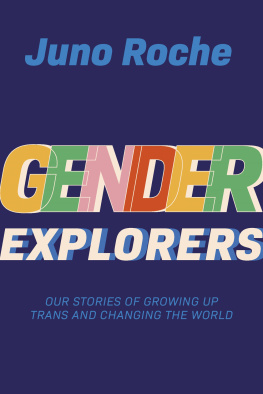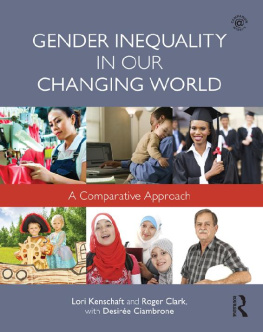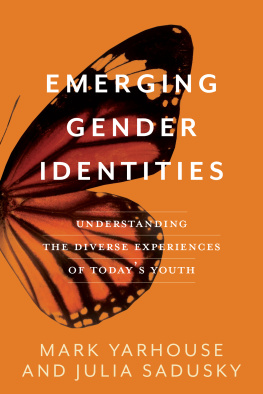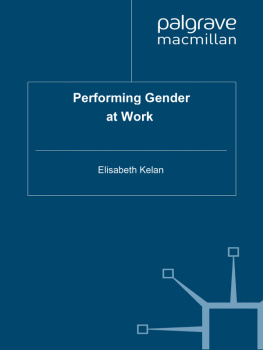First published in Great Britain in 2011 by
The Policy Press
University of Bristol
Fourth Floor
Beacon House
Queens Road
Bristol BS8 1QU, UK
Tel +44 (0)117 331 4054
Fax +44 (0)117 331 4093
e-mail tpp-info@bristol.ac.uk
www.policypress.org.uk
North American office:
The Policy Press
c/o The University of Chicago Press
1427 East 60th Street
Chicago, IL 60637, USA
t: +1 773 702 7700
f: +1 773-702-9756
e:sales@press.uchicago.edu
www.press.uchicago.edu
The Policy Press 2011
British Library Cataloguing in Publication Data
A catalogue record for this book is available from the British Library.
Library of Congress Cataloging-in-Publication Data
A catalog record for this book has been requested.
ISBN 978 1 84742 902 5 paperback
The right of Rachel Thomson to be identified as author of this work has been asserted by her in accordance with the 1988 Copyright, Designs and Patents Act.
All rights reserved: no part of this publication may be reproduced, stored in a retrieval system, or transmitted in any form or by any means, electronic, mechanical, photocopying, recording, or otherwise without the prior permission of The Policy Press.
The statements and opinions contained within this publication are solely those of the author and not of The University of Bristol or The Policy Press. The University of Bristol and The Policy Press disclaim responsibility for any injury to persons or property resulting from any material published in this publication.
The Policy Press works to counter discrimination on grounds of gender, race, disability, age and sexuality.
Cover design by The Policy Press
Front cover: image kindly supplied by Ward Meremans
Printed and bound in Great Britain by Marston Book Services, Oxford
Preface to the paperback edition
I am delighted that this book has made it into paperback and will be more accessible to a wider readership. This paperback edition also provides me with an opportunity for reflection. In the short time since this book was published, and the rather longer period since it was first written, there have been some important changes to the frame within which the work is situated, which I will address briefly in this preface touching on developments within the economy, youth policy and social theory.
The world has changed in a very concrete way, and the lives portrayed in this book, however modest or precarious, begin to look like they may be stories from a relatively lucky generation who benefited from an investment in further and higher education during the years of the New Labour administration in the UK. The credit crunch of 2008 and the subsequent economic recession and change of government are linked to a thorough-going shift in British policy on youth. Perhaps most significantly, the lifting of a cap on student tuition fees and the ending of educational maintenance allowances aimed at helping low income young people stay in education effectively mark a shift away from state support for extended dependency towards a greater reliance on the resources of families and individuals. This is not a response to a rejuvenation of a youth labour market and the view that young people have alternatives to education as a long slow route to independence. Instead it expresses the new official view that supporting young people is no longer a shared public responsibility a decision which, in the short term, will hit the lower middle classes or squeezed middle hardest first, with what public resources there are aimed at the most disadvantaged defined in increasingly narrow ways. In comparative terms, the UK has taken a decisive step towards a US model where life-chances are determined primarily by the market and away from a Northern European model in which life-chances are at least mediated by the state, offering all-comers the potential of modest social mobility through ordinary educational achievement. Nevertheless, the neoliberal shift of responsibility for education from the state to families and individuals is a global process, reshaping the local meaning of education as a form of cultural distinction in the process (Jeffrey and McDowell, 2004).
The young lives in this book unfolded during a sustained period of progressive social policy in the UK that involved investment in early years, childcare and youth services. Now we have entered a phase of small government in which inequalities are likely to grow exponentially, with informal and individualised strategies for defending and reproducing privilege undisturbed by progressive strategies for preventing social exclusion (National Equalities Panel, 2010; UK Womens Budget Group, 2010). Youth unemployment would now appear to be the norm of contemporary global capitalism, where the condition of waiting for work, change and adulthood expands as a practical and existential state for young men in both majority and minority worlds (Roberts, 2009; Jeffrey, 2010). Young women have become the productive subjects of the new world order, the focus of both national and international development strategies, flexible, motivated and socially mobile, regulated in McRobbies terms by the post-feminist contract where the right to be recognised as female is traded for the right to be treated as a genderless worker (McRobbie, 2007). In this context motherhood operates as a moment of transition that involves profound meanings as well as systematic disenfranchisement, whether that be in the form of social exclusions associated with too early young motherhood, or the economic and social penalties experienced by those who defer maternity for education and career (Thomson et al, 2011).
In theoretical terms the landscape has also shifted since the publication of Unfolding lives , with a surge of interest in temporality and the processual. In terms of social policy this has been expressed through the lens of generation, with a particular focus on the historic specificity of the privileges of the baby boomer generation, and a growing realisation of how the welfare state underpins increasingly fragile expectations of what constitutes the stages and sequence of a normal life course. Changes to pension provision, university funding and the care of the elderly are not simply experienced as political changes, but as destabilising our sense of a good or sustainable life. Increasingly we find a consumer model of individual choice superseded by a relational model of interdependency as families seek to balance the competing needs and claims of different generations, seeking collective solutions to individual problems of social mobility and survival (Beckett, 2010; Howker and Malik, 2010; Willetts, 2010).
Within social theory there has also been a shift towards a temporal mode of analysis, with interest in ideas of process, becoming and change that escape the developmentalism of child and adolescent psychology. Often influenced by the philosophy of Deleuze these theoretical tendencies encourage us to think about dynamic processes that are neither contained by ideas of destination for example the transition to adulthood nor by the assumption of norms, with repetition and difference no longer understood as mutually exclusive. The new questions are not primarily concerned with tracing normal and deviant pathways but instead involve an empirical tracing of dynamic processes in order to explore what might flow through them. This is also a post-humanist turn in social theory, with people and populations forming assemblages with policies, markets, material culture and virtual landscapes (Wetherell, 2012, forthcoming). Within childhood and youth studies this turn has been associated with a shift in interest from children as beings (associated with the new sociology of childhood) towards processes of becoming, including new perspectives on the dynamism and effervescence of young peoples bodies and relationships as sites of cultural, biological and economic exchange (Coleman, 2009; Jackson, 2010). In gender studies similar processes are in play, associated with a shift away from political questions about progress, recognition and equity towards an interest in processes that connect and animate the relationship between material, virtual and embodied phenomena (Grosz, 2005; Ringrose, 2011).









